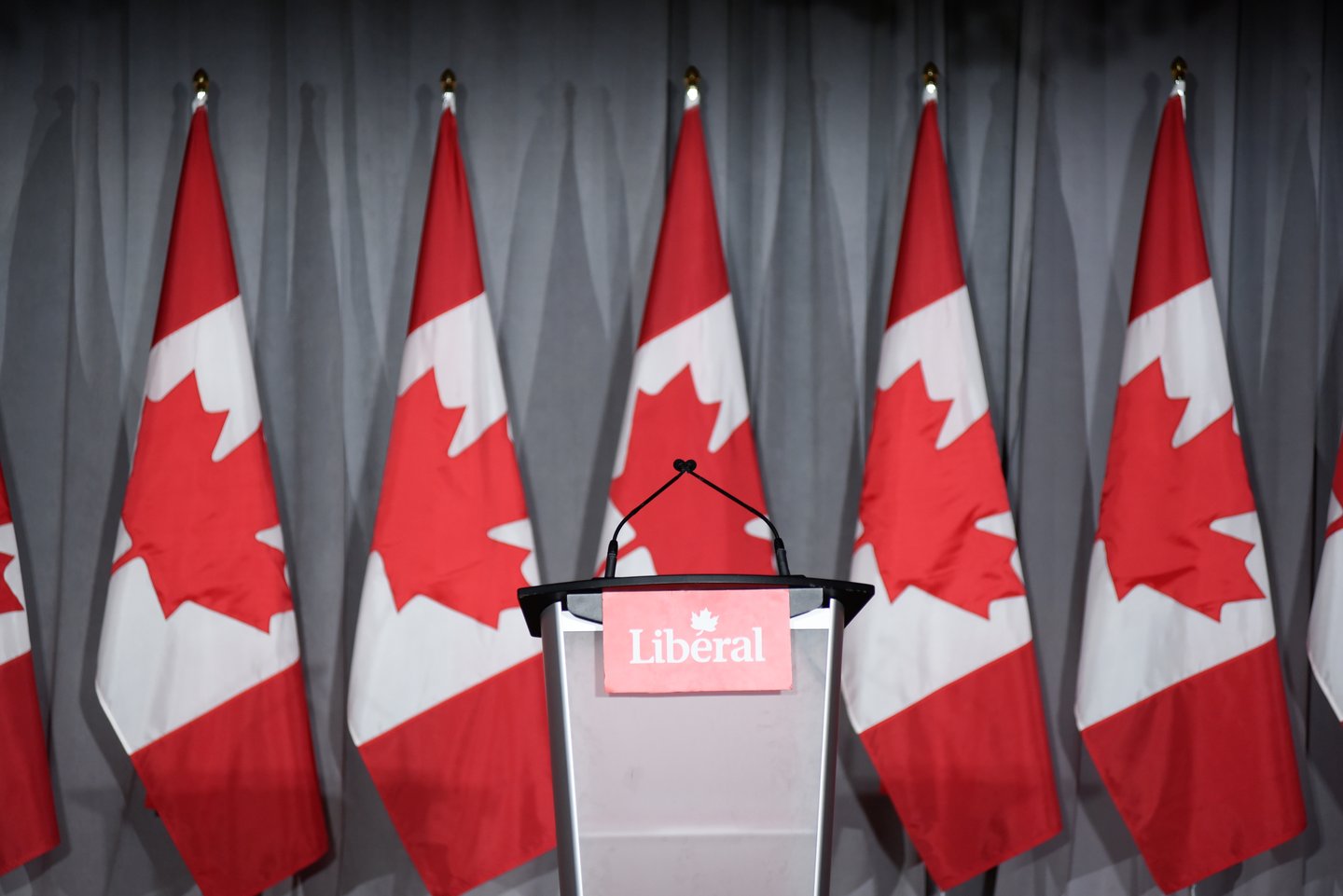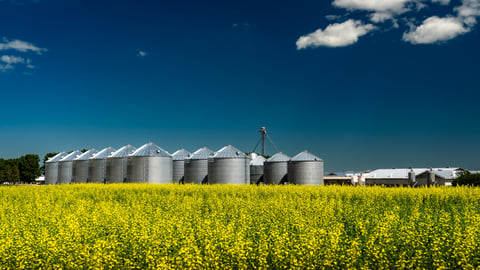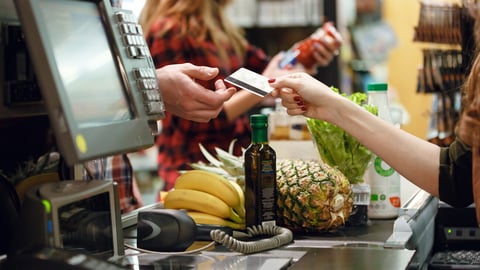What the Liberal leadership candidates said about Trump and food on the debate stage
Contenders to replace Prime Minister Justin Trudeau squared off this week as U.S. President Donald Trump’s tariff threats on Canada loom large.
During the English-language debate on Tuesday night (Feb. 25), Mark Carney, Chrystia Freeland, Frank Baylis and Karina Gould pitched plans to handle Trump, affordability and other issues relevant for Canada’s grocery sector. Here’s some of the highlights:
Food affordability
Mark Carney: “What’s happened in this economy over the last five years is that people’s wages have not kept up with the rise in prices. The average family of four’s food basket has gone up by more than 25%—their wages haven’t kept pace with that.
“A huge range of things need to be done to improve affordability… First thing is, my government will make a middle class tax cut. Second, my government will remove—as Ms. Freeland will—the GST for first-time homebuyers… If we have one Canadian economy we can reduce prices by 15%. If we have greater competition in our economy, which my government would deliver—in groceries, in broadband, in transportation—that will bring prices down, that will help people move ahead.
“We have to absolutely keep in place the progress the government has made on crucial things such as childcare, dental care and farmer care because that helps those who are most vulnerable.”
Frank Baylis: “I’ve actually been on the board of directors of a food bank for 11 years, and you’ll note that that was during the time I was a member of parliament… So I understand this intimately. What tends to happen with politicians—they did it this time, they brought the grocery store owners in and they yelled at them and screamed at them. But the reality is this: if you want to buy an orange, that grocery store has to go buy it from the United States in U.S. dollars, bring it to Canada, convert to Canadian dollars. Every time our dollar goes down, the price of that orange goes up… We need to bring our dollar up and bring oranges, bananas and everything else down.”
READ: Accusations of grocery profiteering unfounded, witnesses tell House food committee
Trump
FB: “President Trump needs to show that he has a win on the border. He’s got himself elected by saying he’s going to deal with illegal immigration… The problem is, for him, there is no problem with Canada. We know it and the Americans know it. He’s trying to make one so he can later solve it. This is not a negotiation—this is a shake down. We have an agreement. He negotiated the agreement, he signed the agreement. The problem we have is he’s not respecting the agreement.”
MC: “In a situation like this, you need experience in terms of crisis management, you need negotiating skills, but you also need economic expertise. Because part of the way to deal with this situation is to do what we should have been doing and what we need to do as a country, which is to build a strong economy… We will never, ever be part of the United States in any way shape or form. We have to recognize that the Donald Trump of today is different than the Donald Trump of several years ago. Then, his objective was to take more of our market. Now, he wants to take our country.
“Underlying all this is what President Trump is looking for [which] is to dominate the hemisphere. He wants to enlarge U.S. power into Canada, into Greenland, into the Panama canal—so the stakes are very, very high. This is a serious crisis, not just an economic crisis [but] a crisis of sovereignty. We do need to build our allies, but we also need to build our economy. If we had one Canadian economy instead of 13, that more than outweighs the impact of what he’s trying to do to us.”
READ: White House says tariffs moving forward but there's still room for negotiation
Karina Gould: “We have leverage, we have things the U.S. wants, and we’re not afraid to use them and if that means that Americans are going to see increased prices or American industries are going to suffer, we are going to make sure we put everything on the table.”
Chrystia Freeland: “Trump represents the biggest threat our country has seen since the second World War… It is a big mistake for Canadians to think that because we can’t change Trump, we can’t negotiate with him. Of course we can’t change him, but we can outwit him. And the way to do that is by using our leverage, by recognizing that, yes, we depend on the U.S.—but they depend on us too. We are their largest market by far, we sell them the things [they] need. A smart, tough negotiator who stands up to Trump can activate those Americans who need us, get them to lobby him. That’s how we get a win-win outcome.”
“Trump is starting with us for a very simple reason. If you can show the world that you can beat up on Canada—your best friend, your reliable, trustworthy neighbour—then think about what the rest of the world feels. It is a demonstration effect. It’s saying, ‘If I can beat up on those guys, imagine what I can do to you.’ And that’s why a smart Canadian strategy needs to start with looking for allies. Working, in the first instance, with Mexico, Panama, Denmark and the EU who all face the same sovereignty challenge… Working with our allies we form a common front and stop Trump from doing what he wants to do, which is pick us off one after the other.”
Supply management
CF: “President Trump is giving us this golden opportunity to fix some of the longstanding, well-known obstacles to Canada being more productive. Interprovincial trade is the standout example, and we now have the will to do it.
“I do want to talk about a part of the economy where there have been huge leaps in productivity which is central to Canada’s resilience and economic strength, particularly as we face up to Donald Trump, and that is rural Canada and our farmers. I am the daughter of a farmer, I grew up on a farm. There are no people in Canada or the world who work harder than farmers and I do think it’s really important for us to have government policies that support our farmers. They give us food security, they are an important source of strength when it comes to this standoff with the U.S. and we need to be very clear with Canada’s dairy farmers that we will stand for supply management. I mean, isn’t it a good thing that we produce our own milk, our own eggs, our own butter, our own cheese—that we’re not dependent on U.S. factory farms for that? So, we need to remember and stand with our farmers.”
KG: “One of the first things I would do as prime minister in my speech from the throne is to ensure we protect supply management. It was a piece of legislation that unfortunately died when we prorogued parliament but I think it is imperative that we protect our supply managed sectors.”




